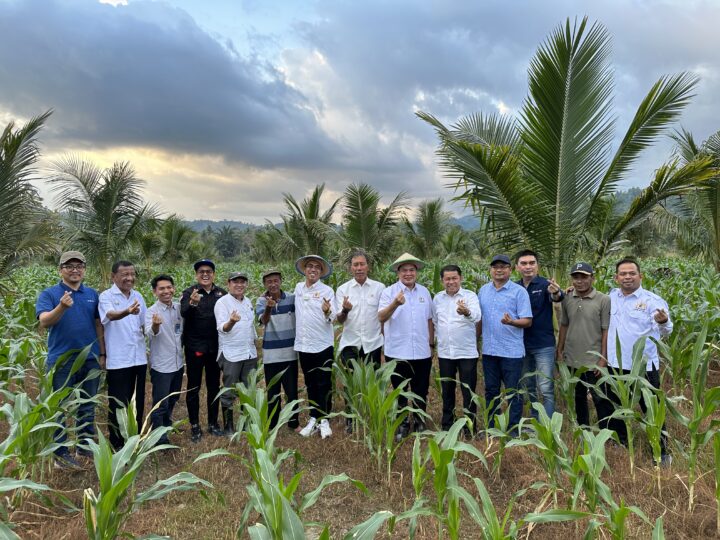
The Indonesian Chamber of Commerce and Industry (Kadin) continues to encourage the development of regional economic potential through the Kadin Impact Award (KIA). With the theme "One Kadin Builds the Nation", KIA is a form of Kadin Indonesia's appreciation to Provincial, Regency and City Kadins that have successfully developed empowerment programmes that have a positive social and economic impact. This event aims to encourage Kadin in all regions to continue to innovate and produce excellent programmes in regional economic empowerment. In this event, Kadin Indonesia conducted a series of assessments on 20 programmes that had a significant social impact owned by the Regional Kadin.
In the context of judging the event, Kadin Indonesia continued a series of visits to Donggala, which presented innovations in corn cultivation through the Sulteng Corn Collaboration 4.0 programme. This programme is a collaborative programme between Kadin Donggala and Syngenta, one of the world's largest suppliers of crop protection products.
Chairman of Kadin Indonesia, Arsjad Rasjid said the collaboration between Kadin Donggala and Syngenta in this programme is the key to success in transforming corn farmers in Central Sulawesi.
"The Sulteng Corn Collaboration 4.0 programme is an example of an inclusive, collaborative, and progressive initiative in fostering local farmers to overcome the challenges that have been encountered. This programme provides Good Agricultural Practice (GAP) assistance which includes farmer counselling, education and training on planting patterns, synergy with the local government, and utilising digital technology by providing an e-commerce marketing system," said Arsjad.
Sulteng Corn Collaboration 4.0 is a corn cultivation development programme in Donggala Regency, Central Sulawesi, initiated by Kadin Donggala in collaboration with Syngenta, Donggala Regency Government, PT Eazt - Jobers, Bank Mandiri, and BRI Bank. The activities carried out include training on corn cultivation techniques by applying Good Agricultural Practices (GAP), providing access to people's business credit (KUR) and crowdfunding, a 15-hectare demonstration garden with productivity above 7 tonnes per hectare, partnerships with farmers as buyers to create a sustainable supply chain, and the use of digital technology for the development of the Smart Corn Ecosystem 4.0 which is a multi-stakeholder integrated program to accelerate the downstream of the corn industry in Central Sulawesi Province.
Chairman of Kadin Donggala Regency, Rahmad Arsyad said the Smart 4.0 Corn Ecosystem Innovation is one of the leading concepts in this programme. This concept not only focuses on increasing the productivity of local commodities, but also forms synergies with advanced industries and various other parties in the framework of integrated farming. With support from banks and fintech for capital, the application of advanced agricultural techniques, and an efficient smart market, the programme has succeeded in accelerating the downstream of the maize industry in Central Sulawesi Province.
"The benchmark of the programme's success is assessed by increasing the capacity of maize farmers through Good Agricultural Practices (GAP) training and providing access to financing from banks and fintech. By involving more than 1,000 farmers and providing KUR and crowdfunding, this programme has driven the growth of the corn plantation sector in Donggala Regency, and has the potential to be replicated in all districts in Central Sulawesi," Rahmad said.
By continuing to focus on self-reliance, sustainability of supply, and continuous evaluation, the Sulteng Corn Collaboration 4.0 programme has succeeded in creating significant positive impacts for farmers and the local economy.
"Through innovations that combine advanced technology, good agricultural practices, and synergies with other downstream industries, this programme has successfully increased efficiency and productivity in the maize value chain.
Going forward, it is hoped that the corn industry in the Central Sulawesi region will continue to grow and be able to compete globally and can encourage the nation's progress through a sustainable and inclusive agricultural sector," Arsjad concluded.
***
National Economy
Regional Economy
National Economy
Regional Economy